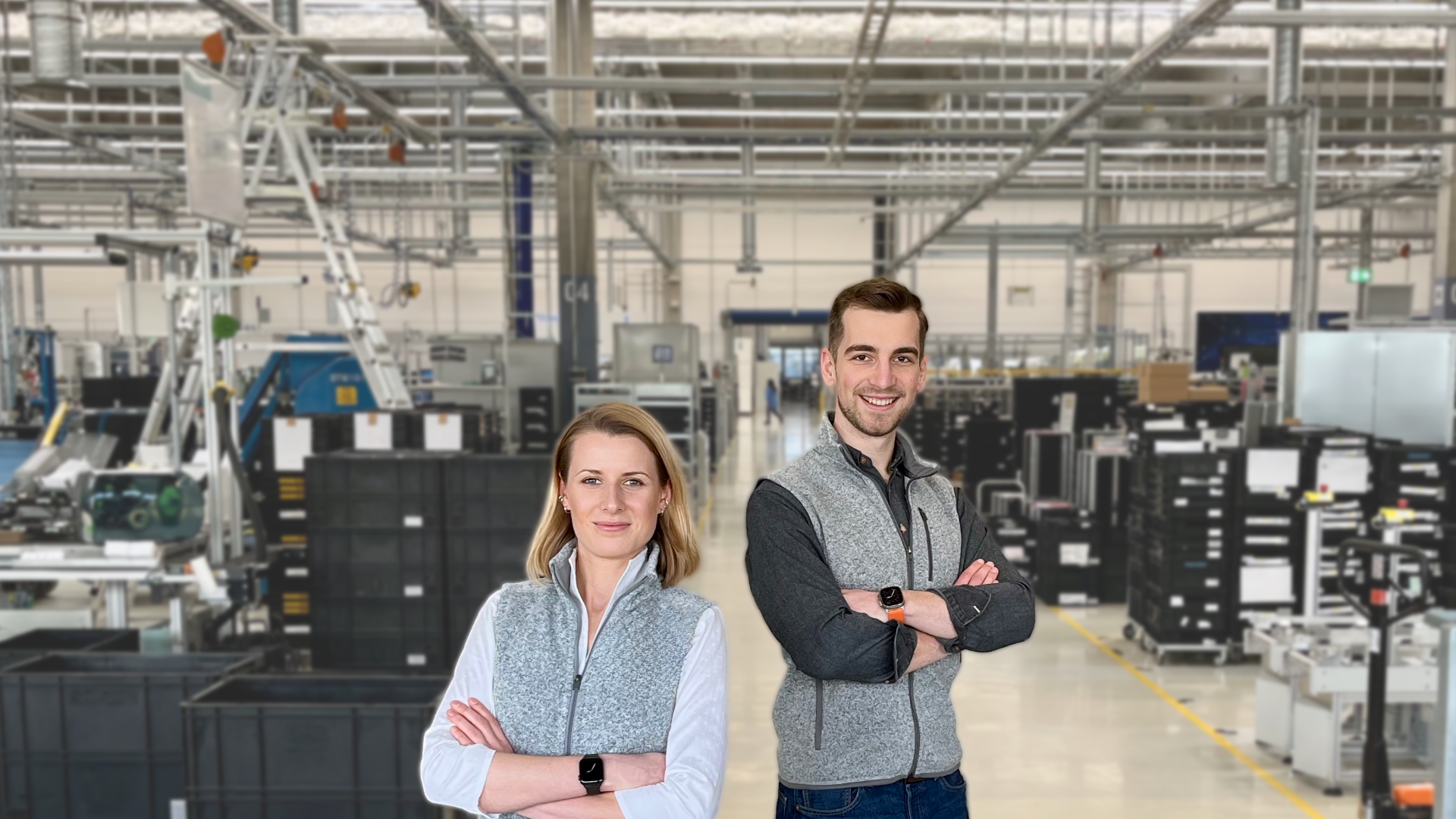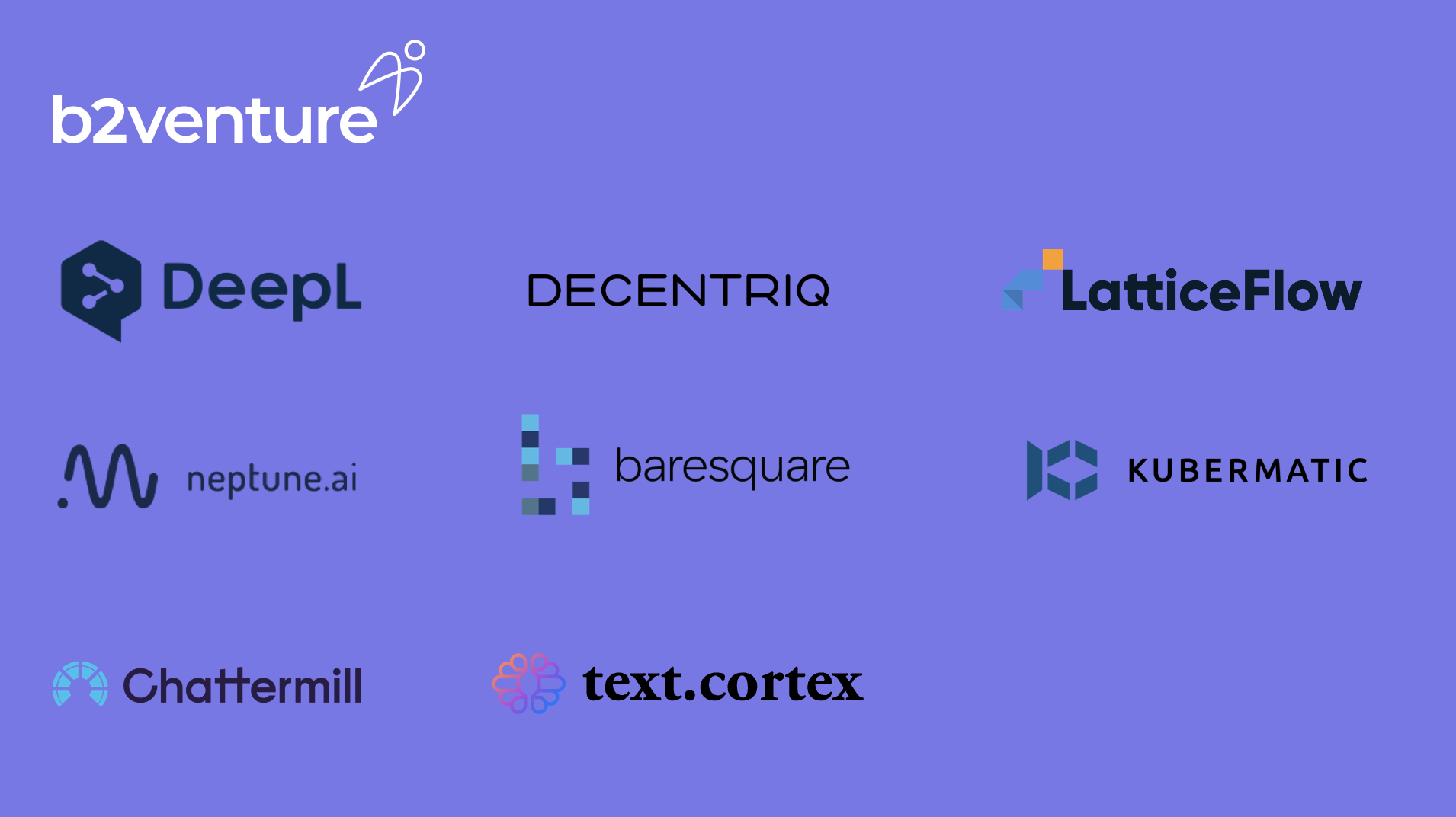How to leverage angel investors for your startup
How to leverage angel investors for your startup
Gwendolyn Schröter, head of the Golzern Holding family office in Leipzig, long-time angel investor, and member of b2venture’s angel community, kindly sat down for a candid conversation about angel investing.

Q: Tell us how you got into angel investing? What motivates you to make startup-investing your primary job?
I studied business and worked for a strategy consultancy which was primarily active in the automotive industry. But I grew older, wanted to have a bigger positive impact on my surroundings, had a family and this family business “Golzern Holding” in the background.
At one point there was this question between continuing on the consulting path and becoming a partner or an industry woman — or to actually use the chance that I am also part of this amazing family office and invest our money into things that might change the world into a better place. I decided to have a direct impact, to give back to “German Mittelstand” and actually also to learn how to leverage these monetary assets that we have as a family and to create something that is good and sustainable.
I have not been doing this for 20 years. We started four years ago and one of our first touchpoints in the industry was b2venture — because we asked ourselves in the beginning: How is this venture capital thing actually working? We just asked people a lot of stupid questions and the best answers actually came from the folks at b2venture. And for four years now we didn’t stop asking ourselves: How is this working?
Q: What kind of teams and companies are you looking at with regard to stage, sector and so forth?
Our primary trigger is sustainability. We especially focus on everything that has an ecological background. Any company that lowers CO2 emissions, has an impact on plastic pollution or a similar focus is generally of high interest to us. Second thing is B2B. For B2C startups it is super crucial to invest a lot of money in marketing, something we generally do not focus on in the first place.
What I am currently curious about is the sector of new materials, bio-based production, the circular economy and sustainable packaging, which is, I know, super narrow and super focused.
Stage wise, we are interested in investing in super young companies as one of the earliest investors, perhaps together with other business angels, or at the first stage after business angels in rounds of up to EUR 2m perhaps, of which we want to have a share of usually between EUR 200k and EUR 300k.
Q: How do you find out whether you can add value for the founders and their startup?
I think the simplest way to understand if I can add value is to ask the people what they need. This also ties into what is important in the angel-startup relationship, which is to be honest and to know about your weaknesses. On the side of the founders and of the team, but also on my side. I think it is super important to be clear as a founder, what you are looking for and where your weaknesses and your strengths lie and how a business angel or investor can add value to that.
Q: Are you open towards founders who still lack a co-founder? Do you get involved in building the actual founder team?
Regarding matchmaking between co-founders, usually I would not recommend searching for an angel first and then to search for a co-founder. When you ask me, I only invest into teams that are complete on a founding level.
Q: So let’s assume there is a fit, how does a great founder — angel teamwork look like for you, Gwen?
First of all, and this is not news for anyone, it is about honesty and transparency. I believe that you can solve everything — but still building a great company is about making a lot of mistakes. You can only learn if you deal with those mistakes and if you have this level of trust because you know, even if you do something wrong, you can talk about it and people can help you solve this, there will be no kind of impediment to development or to growth.
The second thing for me would be to be at eye level. I saw both sides, so on one hand you have the super tough founders who do this name-dropping thing and it does not feel like on eye level for me. And on the other side, I see those, sorry to say, old white men that “have it all”, run a lot of money and built great businesses in the past who talk to founders as if they were babies. This sounds so stereotypical and unrealistic, but it does happen and I’m annoyed by that.
Lastly, it should be fun to talk to each other and you should like to talk to those people because you feel that you’re on the same page.
Q: What percentage of the advice you give is typically implemented? Should founders ask angels: Are you going to be annoyed if I neglect your advice?
This can be a tricky topic. At the end of the day, it’s not my company but that of the founders. I only have a small share and they need to decide and they are also the ones who need to be responsible for their decisions. So they can ask for advice, but it is their decision and their company in the end. And no, I’m not annoyed if they don’t do it as I suggest.
Typically, what I do is just reflect what people tell me. It’s like coaching — you listen to what people tell you and then you give it back to them and they learn something from it. It’s magical and it’s not advice, but it’s a mirror.
Q: Any no-goes for founders apart from chasing you with ideas which are clearly out of your scope?
Lying, of course, is a no-go for me. While it sounds totally obvious, it actually does happen. The second thing is, if you have, from a super early stage, for example, professors who gave their name and suddenly have 20 percent or even more of a company. Even if it’s super interesting, I don’t feel like I can invest into that company. Same applies to super senior business angels who magically have shares in the company and say that they are interim CFO, or similar. A final thing I personally don’t like is buzzword bingo or name-dropping, it’s not working for me.
Q: How is your stance on investing into student founders?
It depends, right now I’m mentoring a student team that I’ve been in touch with since one year. I’m not an investor for them, but I might be in the future. What is not working for me is wanting to build a company, having an investor but still studying. I would say you need to make this decision and not have both at the same time, because it takes a lot of time and consumes a lot of space in your mind if you want to found a company.
Q: How diverse are the companies you invest in, and are you happy with the number of female founders coming forward?
I am not happy with the number of female founders coming forward, because it’s not enough. But to be honest, we also don’t have a super diverse portfolio. This is one of the things I want to change this year. Diversity is more than having male and female founders, but it’s also about color, it’s about age. And if you look at that, in our portfolio, we’re really not performing well, but we know about it and we want to change it. Within our team at Golzern Holding we have two women and two men, so we are not bad at that.
Q: Any last words of wisdom towards aspiring founders, Gwen?
Be clear that you also have something to give! Any investor, that you chose to work with, can be happy to get to work with you. You don’t have to undersell yourself. I think this is an important thing that some people, especially women, forget about.
Gwendolyn Schröter, head of the Golzern Holding family office in Leipzig, long-time angel investor, and member of b2venture’s angel community, kindly sat down for a candid conversation about angel investing.

Q: Tell us how you got into angel investing? What motivates you to make startup-investing your primary job?
I studied business and worked for a strategy consultancy which was primarily active in the automotive industry. But I grew older, wanted to have a bigger positive impact on my surroundings, had a family and this family business “Golzern Holding” in the background.
At one point there was this question between continuing on the consulting path and becoming a partner or an industry woman — or to actually use the chance that I am also part of this amazing family office and invest our money into things that might change the world into a better place. I decided to have a direct impact, to give back to “German Mittelstand” and actually also to learn how to leverage these monetary assets that we have as a family and to create something that is good and sustainable.
I have not been doing this for 20 years. We started four years ago and one of our first touchpoints in the industry was b2venture — because we asked ourselves in the beginning: How is this venture capital thing actually working? We just asked people a lot of stupid questions and the best answers actually came from the folks at b2venture. And for four years now we didn’t stop asking ourselves: How is this working?
Q: What kind of teams and companies are you looking at with regard to stage, sector and so forth?
Our primary trigger is sustainability. We especially focus on everything that has an ecological background. Any company that lowers CO2 emissions, has an impact on plastic pollution or a similar focus is generally of high interest to us. Second thing is B2B. For B2C startups it is super crucial to invest a lot of money in marketing, something we generally do not focus on in the first place.
What I am currently curious about is the sector of new materials, bio-based production, the circular economy and sustainable packaging, which is, I know, super narrow and super focused.
Stage wise, we are interested in investing in super young companies as one of the earliest investors, perhaps together with other business angels, or at the first stage after business angels in rounds of up to EUR 2m perhaps, of which we want to have a share of usually between EUR 200k and EUR 300k.
Q: How do you find out whether you can add value for the founders and their startup?
I think the simplest way to understand if I can add value is to ask the people what they need. This also ties into what is important in the angel-startup relationship, which is to be honest and to know about your weaknesses. On the side of the founders and of the team, but also on my side. I think it is super important to be clear as a founder, what you are looking for and where your weaknesses and your strengths lie and how a business angel or investor can add value to that.
Q: Are you open towards founders who still lack a co-founder? Do you get involved in building the actual founder team?
Regarding matchmaking between co-founders, usually I would not recommend searching for an angel first and then to search for a co-founder. When you ask me, I only invest into teams that are complete on a founding level.
Q: So let’s assume there is a fit, how does a great founder — angel teamwork look like for you, Gwen?
First of all, and this is not news for anyone, it is about honesty and transparency. I believe that you can solve everything — but still building a great company is about making a lot of mistakes. You can only learn if you deal with those mistakes and if you have this level of trust because you know, even if you do something wrong, you can talk about it and people can help you solve this, there will be no kind of impediment to development or to growth.
The second thing for me would be to be at eye level. I saw both sides, so on one hand you have the super tough founders who do this name-dropping thing and it does not feel like on eye level for me. And on the other side, I see those, sorry to say, old white men that “have it all”, run a lot of money and built great businesses in the past who talk to founders as if they were babies. This sounds so stereotypical and unrealistic, but it does happen and I’m annoyed by that.
Lastly, it should be fun to talk to each other and you should like to talk to those people because you feel that you’re on the same page.
Q: What percentage of the advice you give is typically implemented? Should founders ask angels: Are you going to be annoyed if I neglect your advice?
This can be a tricky topic. At the end of the day, it’s not my company but that of the founders. I only have a small share and they need to decide and they are also the ones who need to be responsible for their decisions. So they can ask for advice, but it is their decision and their company in the end. And no, I’m not annoyed if they don’t do it as I suggest.
Typically, what I do is just reflect what people tell me. It’s like coaching — you listen to what people tell you and then you give it back to them and they learn something from it. It’s magical and it’s not advice, but it’s a mirror.
Q: Any no-goes for founders apart from chasing you with ideas which are clearly out of your scope?
Lying, of course, is a no-go for me. While it sounds totally obvious, it actually does happen. The second thing is, if you have, from a super early stage, for example, professors who gave their name and suddenly have 20 percent or even more of a company. Even if it’s super interesting, I don’t feel like I can invest into that company. Same applies to super senior business angels who magically have shares in the company and say that they are interim CFO, or similar. A final thing I personally don’t like is buzzword bingo or name-dropping, it’s not working for me.
Q: How is your stance on investing into student founders?
It depends, right now I’m mentoring a student team that I’ve been in touch with since one year. I’m not an investor for them, but I might be in the future. What is not working for me is wanting to build a company, having an investor but still studying. I would say you need to make this decision and not have both at the same time, because it takes a lot of time and consumes a lot of space in your mind if you want to found a company.
Q: How diverse are the companies you invest in, and are you happy with the number of female founders coming forward?
I am not happy with the number of female founders coming forward, because it’s not enough. But to be honest, we also don’t have a super diverse portfolio. This is one of the things I want to change this year. Diversity is more than having male and female founders, but it’s also about color, it’s about age. And if you look at that, in our portfolio, we’re really not performing well, but we know about it and we want to change it. Within our team at Golzern Holding we have two women and two men, so we are not bad at that.
Q: Any last words of wisdom towards aspiring founders, Gwen?
Be clear that you also have something to give! Any investor, that you chose to work with, can be happy to get to work with you. You don’t have to undersell yourself. I think this is an important thing that some people, especially women, forget about.

The Author
Team







.jpg)












.png)




.jpg)
-min.png)


.jpg)














































.jpg)




















